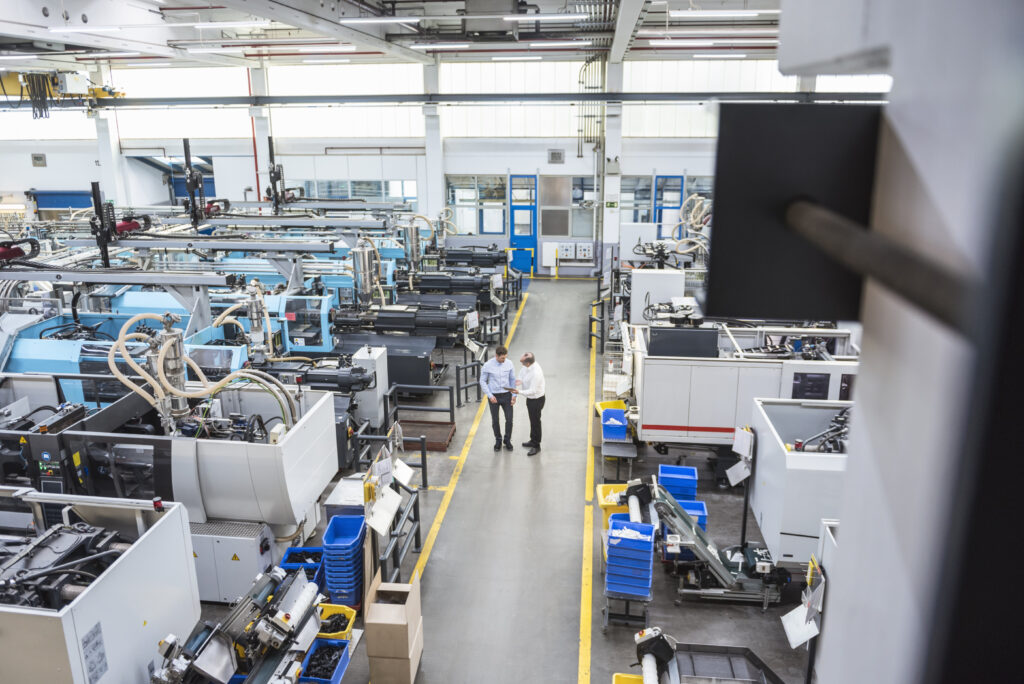Unlocking the Power of Original Equipment Manufacturing: A Deep Dive into OEM Essentials
Step into the world of Original Equipment Manufacturing (OEM) and discover the hidden gems that drive industries forward. In this comprehensive guide, we delve deep into the essential elements that make OEM a powerhouse in production. From custom-tailored solutions to cutting-edge technology integrations, uncover how OEM revolutionizes the manufacturing landscape.
Embark on a journey to unveil the unparalleled benefits of partnering with OEM specialists and harnessing their expertise to elevate your brand to new heights. Whether you’re a seasoned industry player or a newbie navigating the manufacturing realm, this article equips you with the knowledge to leverage the power of OEM effectively.
Join us as we unravel the intricacies of OEM partnerships, explore the latest trends shaping the sector, and equip you with actionable insights to propel your business towards unparalleled success. Let’s unlock the untapped potential of OEM together.

Understanding Original Equipment Manufacturing (OEM)
Original Equipment Manufacturing (OEM) refers to the production of goods by one company that are then marketed and sold under another company’s brand. This process is a vital aspect of modern manufacturing, allowing businesses to focus on their core competencies while outsourcing the production of specific components or entire products to specialized manufacturers. OEMs are instrumental in various sectors, including automotive, electronics, medical devices, and consumer goods, providing tailored solutions that meet the distinct needs of different industries. By leveraging the expertise of these manufacturers, companies can enhance their product offerings and streamline their operations, thereby gaining a competitive edge in the marketplace.
The concept of OEM is not merely about manufacturing; it encompasses the entire lifecycle of product development, from design and engineering to assembly and distribution. OEMs often work closely with their clients to create customized products that align with the brand’s specifications, ensuring that the end result meets the desired quality and performance standards. This collaboration can lead to innovative solutions that might not be achievable through in-house manufacturing alone, highlighting the importance of OEM partnerships in fostering creativity and efficiency in production processes.
As industries continue to evolve, the role of OEMs has become increasingly significant. With the rise of globalization and technological advancements, companies are constantly seeking ways to optimize their supply chains and reduce costs. By partnering with OEM providers, businesses can tap into a wealth of resources, knowledge, and capabilities that can help them navigate the complexities of modern production. This symbiotic relationship between OEMs and their clients is essential for driving innovation and maintaining competitiveness in a rapidly changing marketplace.
Importance of OEM in Various Industries
The importance of OEM can be observed across multiple industries, where the demand for high-quality, reliable products is paramount. In the automotive sector, for instance, OEMs play a crucial role in producing essential components such as engines, transmissions, and electronic systems. By relying on specialized manufacturers, automotive companies can ensure that they receive parts that meet stringent safety and performance regulations, ultimately enhancing the quality of their vehicles. This reliance on OEM partnerships allows automakers to focus on design and marketing, leaving the intricacies of manufacturing to experts in the field.
In the electronics industry, OEMs are instrumental in the production of consumer gadgets, computers, and communication devices. Companies like Apple and Samsung often collaborate with OEM partners to manufacture components like circuit boards and display screens, which are then integrated into their products. This collaboration not only helps in reducing production costs but also enables these tech giants to scale their operations quickly and efficiently. As technology advances at a rapid pace, OEMs are equipped to adapt to changing demands, ensuring that their clients remain at the forefront of innovation.
Moreover, the medical device industry heavily relies on OEM partnerships to produce specialized equipment and instruments. With strict regulatory requirements and the need for precision, OEMs are uniquely positioned to provide high-quality manufacturing solutions that meet the rigorous standards set by health authorities. This partnership model allows medical device companies to focus on research and development, while OEMs handle the complexities of production. As a result, the collaboration between OEMs and medical firms not only enhances product quality but also accelerates the time-to-market for life-saving technologies.
Advantages of Partnering with OEM Providers
Partnering with OEM providers brings a myriad of advantages that can significantly benefit businesses in various sectors. One of the most notable advantages is cost efficiency. By outsourcing production to OEMs, companies can reduce labor and operational costs associated with in-house manufacturing. This is particularly beneficial for small and medium-sized enterprises (SMEs) that may lack the resources to invest in extensive manufacturing facilities. OEMs often have established supply chains and economies of scale that allow them to produce goods at a lower cost, which can be passed on to their clients.
Another significant advantage is access to specialized expertise and technology. OEM providers are typically industry experts with deep knowledge of manufacturing processes, materials, and technologies. By leveraging this expertise, companies can enhance their product quality and innovation. For instance, an electronics company may not have the in-house capabilities to produce advanced circuit boards. However, by partnering with an OEM that specializes in electronics manufacturing, they can gain access to cutting-edge technology and production techniques that elevate their product offerings.
Additionally, OEM partnerships can lead to increased flexibility and scalability. As market demands fluctuate, businesses must be able to adapt quickly to changes in production volume. OEMs provide the agility needed to scale operations up or down without the burden of managing fixed costs associated with in-house production. This flexibility allows companies to respond to market trends and customer needs more effectively, ultimately leading to improved customer satisfaction and loyalty.
Key Components of OEM Agreements
When entering into an OEM agreement, several key components must be carefully considered to ensure a successful partnership. Firstly, the terms of the agreement should clearly define the scope of work, including the specific products or components to be manufactured, quality standards, and delivery timelines. This clarity helps to establish mutual expectations and minimizes the risk of misunderstandings or disputes during the production process.
Secondly, intellectual property rights are a crucial aspect of OEM agreements. Companies must protect their proprietary designs, technologies, and trademarks when collaborating with OEM partners. This often involves detailing the ownership of intellectual property in the agreement and establishing confidentiality clauses to safeguard sensitive information. Ensuring that both parties understand their rights and responsibilities regarding intellectual property is essential for fostering a trusting and collaborative relationship.
Lastly, pricing and payment terms are vital components that need to be addressed in OEM agreements. The pricing structure should reflect the cost of production, including materials, labor, and overhead, while also considering profit margins for the OEM. Additionally, payment schedules should be delineated, specifying when payments are due and under what conditions. Establishing transparent pricing and payment terms helps to prevent financial disputes and ensures a smooth workflow throughout the partnership.
Key Considerations for Choosing the Right OEM Partner
Selecting the right OEM manufacturer is critical to success. Key factors to evaluate include:
Industry Experience – Does the OEM have a proven track record in your sector? IPS specializes in custom product development across consumer goods, electronics, healthcare, and more.
Manufacturing Capabilities – Can the OEM supplier produce high-quality, scalable products? IPS partners with trusted, verified factories to ensure superior quality.
Compliance & Certifications – Does the OEM meet industry regulations for safety and quality? IPS ensures full compliance with FDA, ISO, and CE standards where applicable.
IP Protection – How does the OEM protect your product designs? IPS enforces strict confidentiality agreements and secure manufacturing processes.
Supply Chain Logistics – Can your OEM help transport and ship your product around the globe? Good OEM partners have the expertise and knowledge to insure your product doesn’t get stuck in Customs or trapped in the various shipping ports.
Why Work with IPS for OEM Manufacturing?
Unlike traditional OEM manufacturers, IPS offers:
Custom product development from concept to production
🔸 Trusted global factory partnerships for high-quality manufacturing
🔸 Private labeling, packaging, and fulfillment solutions
🔸 Expertise in supply chain management and logistics
🔸 Full IP protection and compliance oversight
IPS makes custom OEM manufacturing simple, allowing brands to scale efficiently, maintain quality, and reduce production costs.
Contact Us

